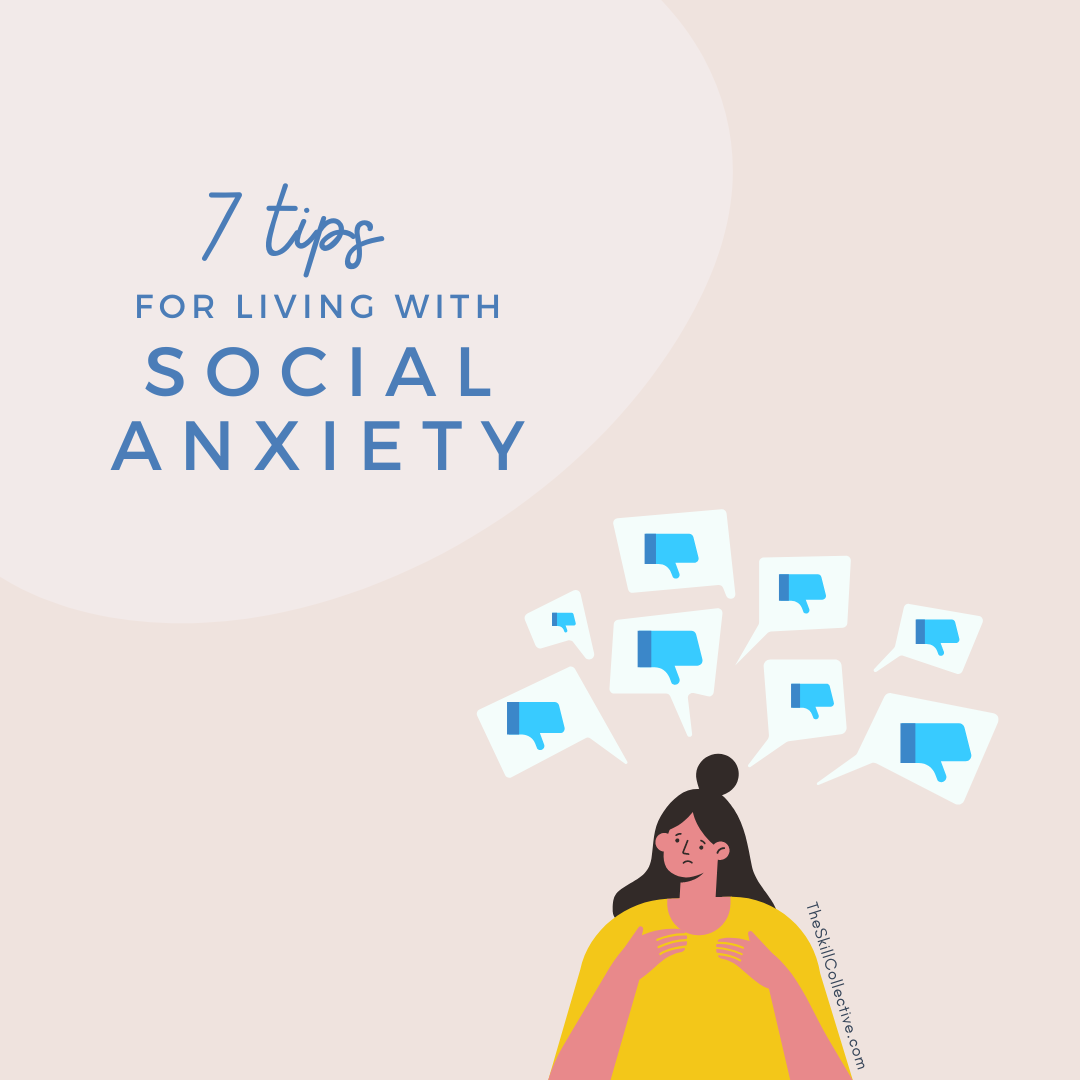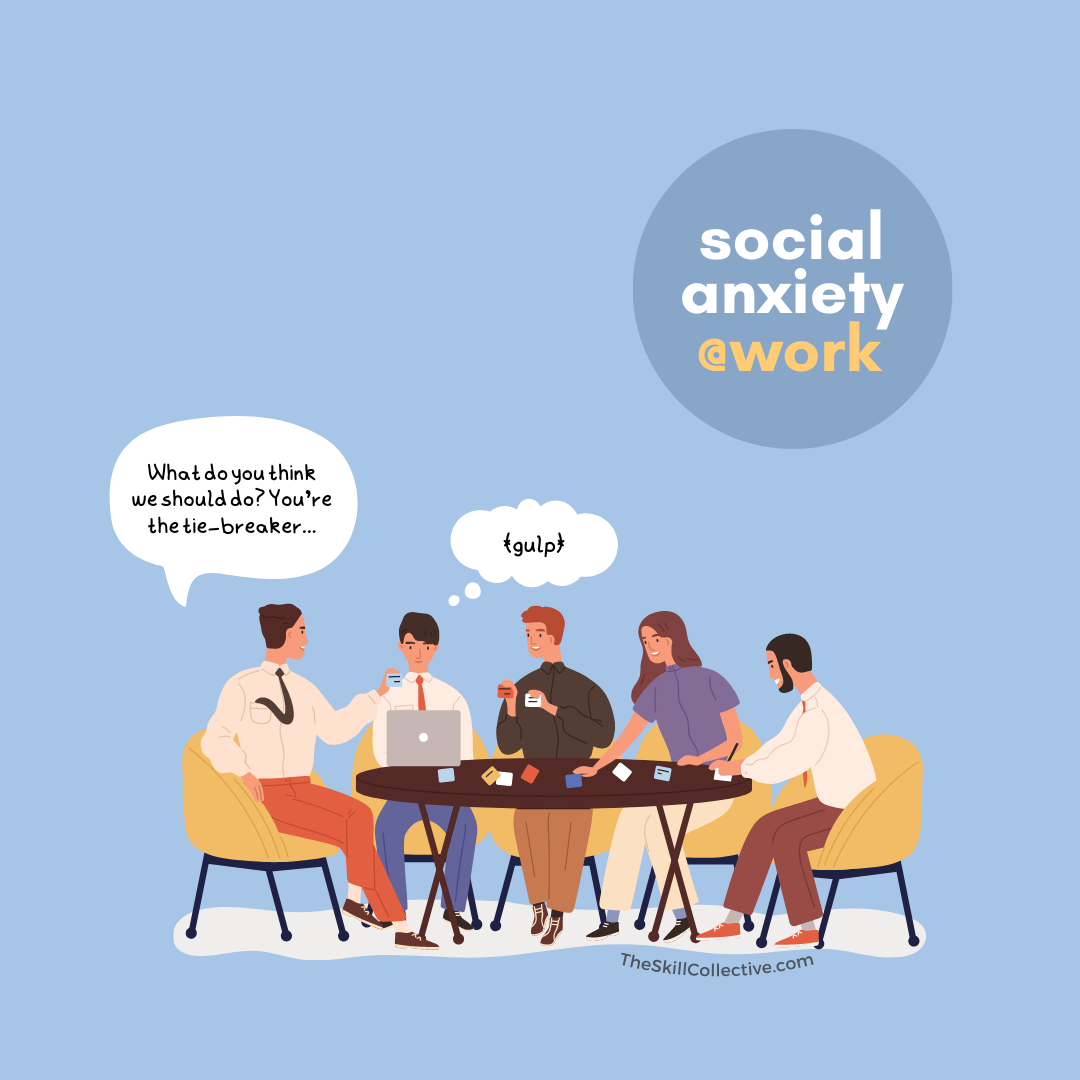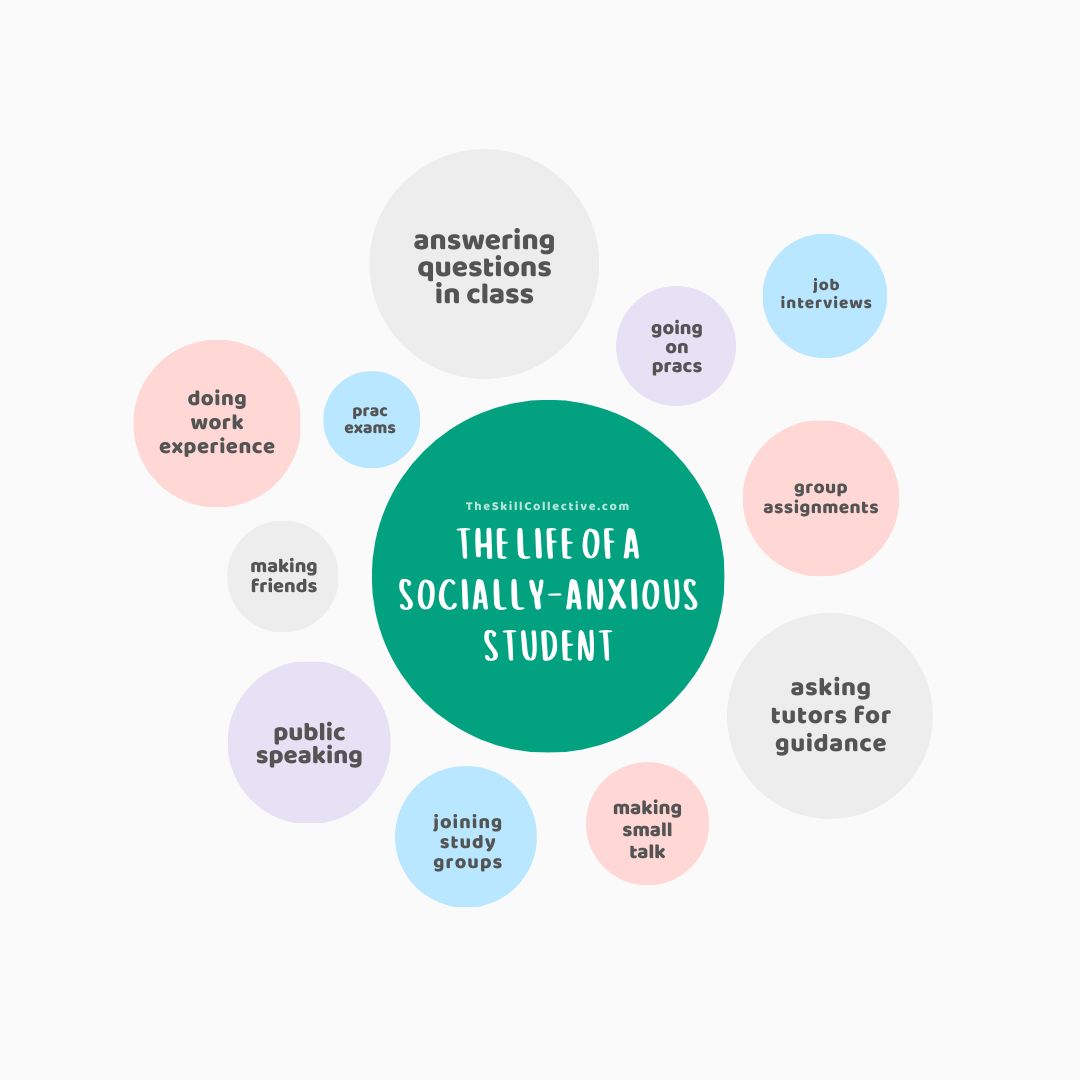7 tips for living with social anxiety
By Joyce Chong
In the 2007 National Mental Health and Wellbeing survey that surveyed 16million Australians to gain a picture of the nation’s Mental Health we found that anxiety is the most common mental health disorder experienced by individuals. (see here for a brief summary)
Within anxiety, social anxiety is the second most common anxiety disorder experienced (behind posttraumatic stress disorder). Social anxiety is linked with poorer quality of life and workplace productivity [1] and also with the increased use of alcohol and cannabis.[2]
If you're one of the many who experience social anxiety or know of someone who does, read on for our 7 tips for living with social anxiety. We've also included a printable version at the bottom of the article.
1. Know the difference between shyness and social anxiety
It’s easy to fall into the trap of seeing social anxiety as just an extreme of shyness. Indeed, there is a higher rate of social anxiety amongst shy individuals compared to individuals who aren’t shy, however the majority of shy individuals do not have social anxiety.[3]
However, social anxiety differs from shyness in that there is a marked level of fear involved, there is avoidance of feared situations, there is a strong fear of negative evaluation, and the social anxiety has a negative impact on functioning in several areas of life (e.g. work performance or relationships).
For example, a student may feel shy in a tutorial room, but if that person is distressed at the prospect of having to speak in the tutorial, and the tutorials have a participation component that students must pass (that is, they risk failing the entire unit if they don’t contribute) then we are looking more at a picture of social anxiety.
Did you know that for some, the anxiety is present only in situations where performance is concerned? So, while they may do well in most aspects of socialising, there may be anxiety just when doing public speaking or talking to people in positions of authority (e.g. managers, lecturers).
2. Take action…now!
Social anxiety typically starts between late childhood and mid-adolescence, with sufferers waiting an average of 15-20 years before they seek treatment.[1]
Given the wide-ranging impact of these social fears, it is understandable that social anxiety is linked with poorer quality of life and wellbeing – how restrictive would it be if you were afraid to go for a job interview, ask someone for directions, ask a question of your teacher, or even looking people in the eye in a passing conversation in case they think negatively of you?
How long have you lived with social anxiety? How does it hold you back in your life? Take action now so that you don't have to continue to live this way.
3. Challenge your avoidance
Avoiding a scary situation may bring you immediate relief, but over time you may notice that more situations cause you anxiety, or that your anxiety gets more intense.
The reality is that striving to feel safe all of the time is unrealistic, and trying to achieve this means that the number of situations in which you feel comfortable starts to rapidly shrink.
Make changes by taking one small step at a time. For example, if you're afraid of making conversation with people, start off by making small talk about the weather with the check out operator at a new grocery store, then build up to making small talk with the receptionist at your doctor's surgery. It takes one small step to get the ball rolling.
4. Rethink your drink
Social anxiety is associated with an increased rate of alcohol dependence. [4] Alcohol is often used to cope with nerves before and during a social situation, but it's important to rethink your drink and take a good hard look at whether it's just another form of avoidance.
Why is using alcohol to cope with anxiety a bad thing when many of our social situations involve alcohol? Well, alcohol may make you feel less anxious in the short term, but in the longer term do you learn that you can cope without a drink? Sound familiar? Refer to Point 3 – yes, using alcohol sounds like a form of avoidance.
5. Check your thoughts
Are your thoughts and thinking styles making your anxiety worse? Tune in to your thoughts when you first notice anxiety building up in a social situation. Are you making an incorrect assumption? Are you jumping to conclusions, or catastrophising by focusing on the worst case scenario?
If you're giving a presentation, do you assume that one small mistake in your presentation means that you have made a fool of yourself? Will the worst case scenario of being laughed at by everyone really come true?
We’ve previously blogged about Checking your Thoughts in relation to social anxiety here in our post on social anxiety and Christmas functions so use that as a starting point. You can also find more information on thinking styles here.
6. Conduct an experiment
Sometimes we believe what we believe because we haven’t had evidence to the contrary. Let's say you keep your head down on the bus because you think that others on the bus will stare at you. By keeping your focus on your feet or phone, you won't see that they’re not staring at you. In other words, your belief is reinforced or, at the very least, not disputed.
Let’s mix things up a little. Let’s conduct an experiment by sitting at the back of the bus, and then watching what people actually do. Chances are, you’ll see that people are either looking at their phones, or looking out the window. The thing is, though, you won’t really know unless you do the experiment to test your belief.
7. Seek professional help
A lot can be done to help with social anxiety, so please take action before 15-20 years pass you by (see Point 2). Psychological treatments such as Cognitive Behaviour Therapy (CBT) and Acceptance and Commitment Therapy (ACT) have been shown to be effective in the treatment of social anxiety.[5] You can also speak with your GP to discuss medication options.
Thanks for reading. We hope that the tips on managing social anxiety are helpful.
Want more? You can connect with The Skill Collective in the following ways:
Contact us to make an individual appointment to get started on making changes.
Get access to our FREE resource library filled with exclusive tip-sheets on Wellbeing, Mental Health, and Performance that you won't find here on the blog
Join our FREE 14-day Wellbeing Challenge. Tailored for busy lives we're talking wellbeing tips for better body, mind, and heart in just 15 minutes a day, delivered straight to your inbox.
REFERENCES
[1] American Psychiatric Association (2013). Diagnostic and statistical manual of mental disorders (5th edition, DSM-5). Washington: American Psychological Association.
[2] Buckner, J.D., Schmidt, N.B., Lang, A.R., Small, J.W., Schlauch, R.C., & Lewinsohn, P.M. (2008). Specificity of Social Anxiety Disorder as a risk factor for alcohol and cannabis dependence. Journal of Psychiatric Research, 42, 230-239.
[3] Heiser, N.A., Turner, S.M., & Beidel, D.C. (2003). Shyness: relationship to social phobia and other psychiatric disorders. Behaviour Research and Therapy, 41, 209-221.
[4] Schneier, F.R, Foose, T.E., Hasin, D.S., Heimberg, R.G., Liu, S.M., Grant, B.F., & Blanco, C. (2010). Social anxiety disorder and alcohol use disorder comorbidity in the National Epidemiologic Survey on Alcohol and Related Conditions. Psychological Medicine, 40, 977-988.
[5] Craske, M.G., et al. (2014). Randomized controlled trial of cognitive behavioral therapy and acceptance and commitment therapy for social phobia: outcomes and moderators. Journal of Consulting and Clinical Psychology, 82, 1034-1048.








Public speaking anxiety holding you back at work? Step up to the next level with these tips to help you manage your anxiety.